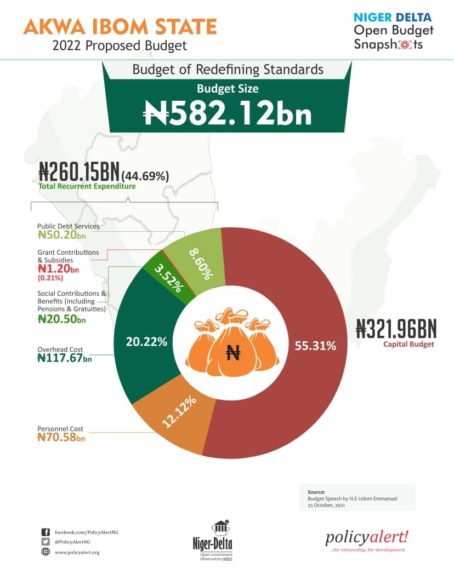Executive Director of Policy Alert, Tijah Bolton-Akpan, stated this in a statement released after the presentation of the budget speech by the Akwa Ibom State Governor on Monday.
The organisation noted that there were conspicuous gaps in the budget speech, especially in the area of recurrent revenue.

“A budget proposal is not complete until it presents a clear picture of the spending plan and expected revenue. However, capital receipts are dependent on several factors that are beyond the control of the state government, and sometimes even the central government. The budget speech does not provide the recurrent revenue estimates, which could have completed the picture of how the government plans to fund the budget. We cannot afford to gloss over the revenue side of the state budget, especially at this time when fiscal space is threatened by global and domestic headwinds related to oil price volatility, the energy transition and national illiquidity.
“For instance, it is unclear what the state is expecting from statutory allocation in 2022. What is the State planning to generate as internally generated revenue? What does the State project to get from 13 percent derivation? These important funding questions are unanswered in the budget speech and the state government has to come clear on these basics right from the outset” the statement said.
Bolton-Akpan also faulted the ambitious capital receipt estimates for “refunds from federal government/federation account”, noting that much of this amount is premised on recent court awards which may or may not materialise in the course of the fiscal year. He noted that betting 137.9billion or 23.6 percent of the total budget sum on a shaky revenue source is risky for the fiscal health of the state.
The statement, however, commended the state government on the capital-recurrent ratio, noting that with capital expenditure taking 55.3 percent of the total budget outlay, there is reason for optimism that the state government will focus more on people-oriented developmental projects than on running the government.








